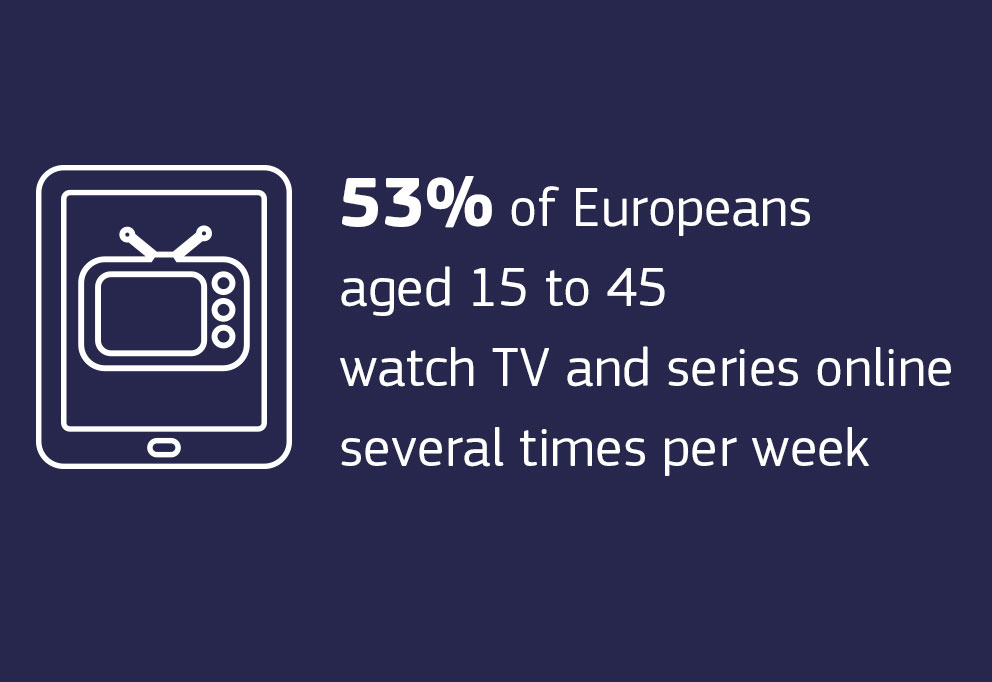The negotiators of the European Commission, the European Parliament and the Council, have today reached a political agreement on the proposed copyright legislation on TV and radio programmes.
The new rules will make it easier for European broadcasters to make certain programmes available on their live TV or catch-up services online, and will simplify the distribution of more radio and TV channels by retransmission operators. This agreement marks an important step towards a fully functioning Digital Single Market.
Vice-President for the Digital Single Market Andrus Ansip said: “I am very pleased we reached yet another agreement that brings us closer to a functioning Digital Single Market. The updated broadcasting rules are a big part of the puzzle. This regulation has the potential to unlock a large amount of broadcast content across borders, benefitting the 41% of Europeans who watch TV online but also the 20 million EU citizens who were born in a different EU country from the one they live in”.
Commissioner for Digital Economy and Society Mariya Gabriel said: “Today’ agreement is a double win for European’s cultural diversity: citizens will have better access to Europe’s rich content, and creators and authors will be adequately rewarded for their content.”
While 41% of Europeans watch TV online, the number is higher among the young generation with 50% of Europeans aged 15-24 doing it at least once a week. And among Europeans aged 15-45, 19% use online broadcasting services to watch TV series and films.
What will the directive change for the distribution of TV and radio programmes?
- The Principle of the country of Origin (COO): the Directive introduces the country of origin (COO) principle to facilitate the licensing of rights for certain programmes that broadcasters may wish to offer on their online services (simulcasting, catch-up services and other services that complement the main broadcast, such as previewing). Thanks to this mechanism, broadcasters will be able to make radio programmes, TV news and current affairs programmes as well as their fully financed own productions, available online in all EU countries.
- Retransmission: the Directive provides a mechanism to facilitate the licensing of rights in the case of retransmission of radio and TV programmes, which includes retransmission services provided over the internet under certain conditions. This measure is expected to contribute to a wider distribution of radio and TV channels.
- Direct injection: Direct injection is a process increasingly used by broadcasters to transmit their programmes to the public. The new rules will make sure that right holders are adequately remunerated when their works are used in programmes transmitted through direct injection. They will provide legal certainty to broadcasters and distributors involved in the process.
Next Steps
Today’s political agreement will need to be confirmed by the European Parliament and the Council of the EU in the next weeks.
Background
In September 2016 the European Commission proposed a Regulation to facilitate the licensing of rights for certain online transmissions of broadcasters and retransmissions of television and radio programmes. This proposal is a part of a broader initiative to adapt EU copyright rules to the digital age.
Today broadcasters are increasingly offering their broadcasts online. However, their online programming often remains unavailable in other Member States than their Member State of origin even if there could be a potential high interest (for instance because of the language). The current complexity in the clearing of rights (i.e. obtaining right holders’ authorisations) makes it difficult for these services to develop across borders.
The directive agreed on today complements the existing Satellite and Cable Directive, which already facilitates cross-border satellite broadcasting and retransmission by cable of TV and radio programmes from other Member States. Thanks to the Satellite and Cable Directive, a large number of TV channels are available in other Member States than the Member State of origin. This has benefited to strengthen Europe’s cultural diversity and to Europeans living in another Member State.












Show Comments